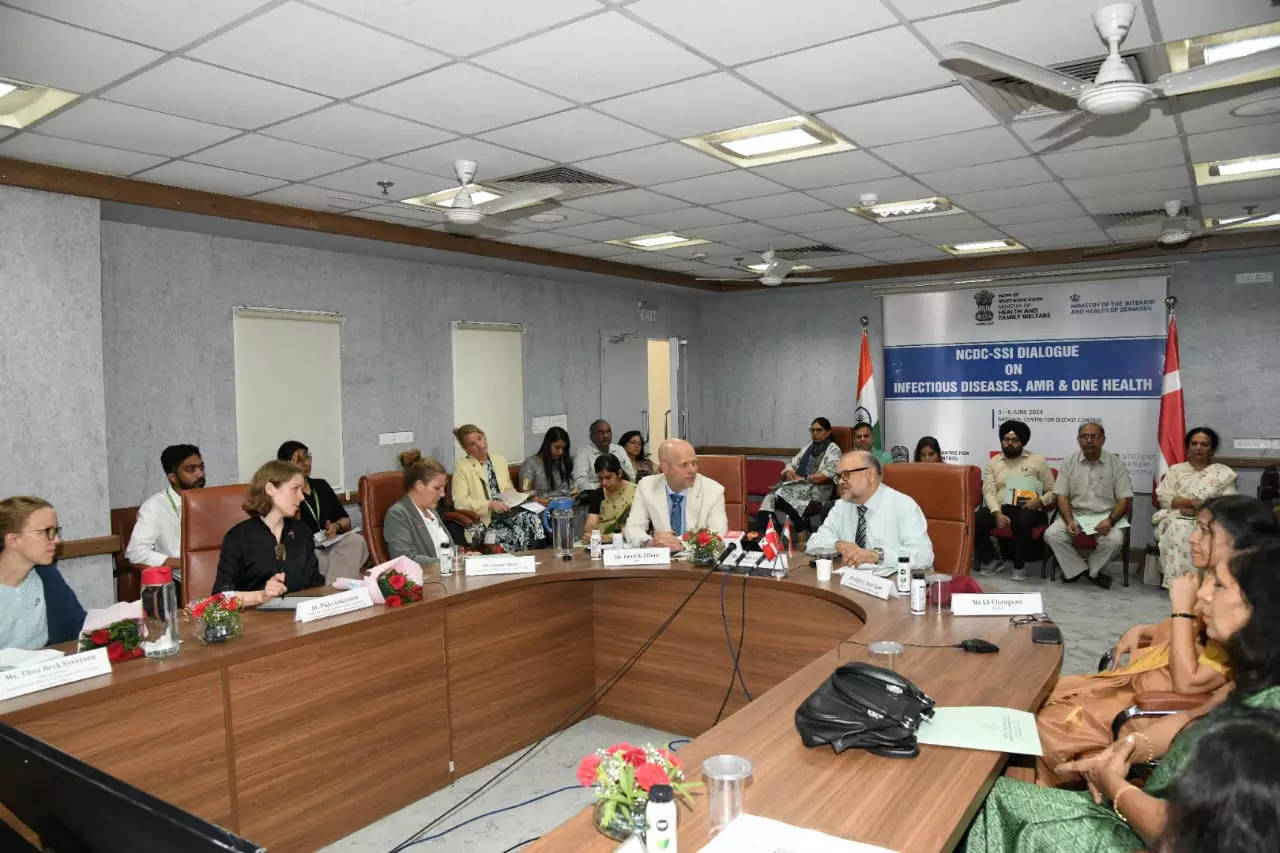
New Delhi: India and Denmark in Monday started a four-day bilateral dialogue between the National Centre for Disease Control (NCDC), Ministry of Health & Family Welfare, Government of India and Statens Serum Institute (SSI), Ministry of the Interior and Health of Denmark, in New Delhi.
The event aims to strengthen cooperation between both nations in the fields of infectious diseases, antimicrobial resistance, and the One Health approach.
Denmark Ambassador Freddy Svane, Directorate General of Health Services Prof Atul Goel and other senior officials from the Ministry of Health and Family Welfare attended the inaugural session.
“A four-day event to hold bilateral dialogue between the National Centre for Disease Control (NCDC), @MoHFW_India, Government of India, and Statens Serum Institute (SSI), Ministry of the Interior and Health of the Kingdom of Denmark, commenced today in New Delhi. The event aims to strengthen cooperation between both nations in the fields of infectious diseases, antimicrobial resistance, and the One Health approach,” the Ministry of Health said in a post on X.
“Prof (Dr) Atul Goel, DGHS, Mr. Freddy Svane, Ambassador of Denmark, and other senior officials from @MoHFW_India and Denmark attended the inaugural session,” the post added.
Director General of Health Services, Professor Atul Goel, said that post-COVID, we have to be prepared for the upcoming pandemic, and for that, worldwide collaborations are being done.
“There is a collaborative dialogue between the NCDC (National Centre for Disease Control) and the SSI (Statens Serum Institut) of Denmark. The very important health issues that are present in today’s time include antimicrobial resistance (AMR), One Health, and infectious disease prevention, especially the COVID-19 pandemic experience,” he told the reporters.
“After the COVID times, we have to be ready for the upcoming pandemic. That’s why worldwide collaborations are being done. One of those collaborations is between India and Denmark,” he stressed.
Prof Goel emphasised that the exchange of experiences between India and Denmark will help to move forward in all three areas.
He emphasised that the “One Health” approach is not entirely a new area and is about the health of the ecosystem, adding that humanity has forgotten about this ecosystem in the quest for development.
“Now, “one health” is not entirely a new area, although we all call it a new area. It is about the health of the ecosystem. For some reason, humanity forgot about this ecosystem in the quest for development. And it was left and left in the lurch. So it’s good that everybody realised that the importance of not just all living beings around us, but also the environment is equally important,” he said during the event.
Asked whether the agreement of intent has been signed between the two nations, he noted that the two nations will mark their 75th year of ties and added that the “agreement of intent will be signed after a few days.”
The DGHS noted that the Ministry of Health has issued an advisory to all states about the necessary precautions, adding that there was also an advisory for patients to avoid going out in the hot summer.
“They should do their activities before peak noon or after peak summer. They should not allow children to play during peak heat. I am doing a small thing. I wet my cap and walk. It is an old method to protect yourself from heatwaves,” he said.
On being asked about the death rate, he said, “I can’t tell you the exact number because the numbers that are released are not confirmed. After that, a verbal postmortem is done. The number of confirmed deaths from the heat stroke is finally released by the NCDC.”







